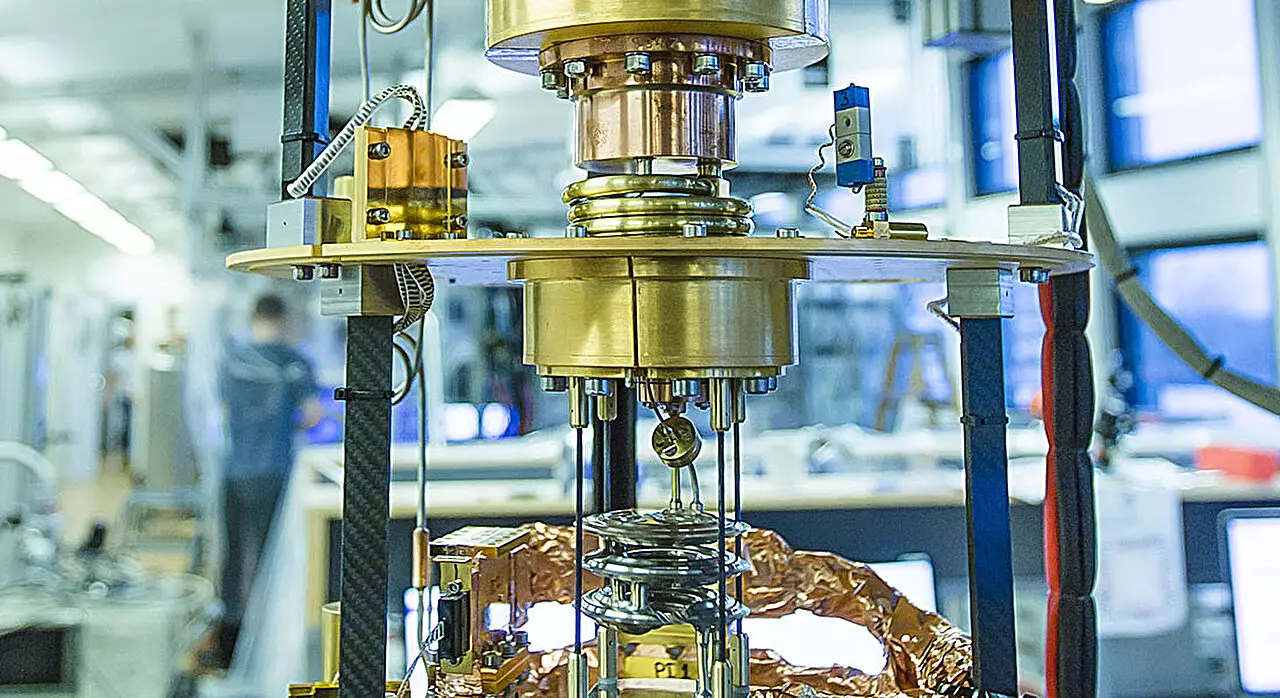In the pursuit of perfecting quantum systems, scientists have typically focused on minimizing noise that could disrupt the function of quantum computers. However, researchers at the Niels Bohr Institute (NBI) have taken a different approach by harnessing noise to process quantum information. This unconventional method has resulted in a significant improvement in the performance of qubits, the fundamental units of quantum computing.
The Novel Approach
Traditionally, the presence of noise in quantum systems has been a major obstacle, as even slight environmental changes can lead to the breakdown of quantum effects. Rather than attempting to eliminate noise altogether, the researchers at NBI have developed a system that continuously monitors and adapts to noise in real-time. By leveraging recent advancements in technology such as field-programmable-gate-array (FPGA) and machine learning, the team is able to adjust the quantum system on-the-fly, resulting in a 700% increase in qubit performance.
In conventional computing, information is stored in bits, each of which can have a value of either one or zero based on the charge of electrons. On the other hand, qubits in quantum computing can exist in multiple states simultaneously, dramatically increasing the amount of information they can process. By controlling various quantum properties, quantum computers have the potential to far surpass the capabilities of traditional computers.
Fundamental to quantum mechanics are concepts such as particle spin and entanglement, which play a crucial role in the behavior of quantum systems. The researchers at NBI have utilized a singlet-triplet spin qubit in their experiments, which consists of two entangled electrons enclosed in a gallium arsenide double quantum dot. The integration of these qubits with advanced controllers powered by FPGA has enabled real-time monitoring and adjustment of the quantum system.
The success of the research conducted at the NBI is attributed to the collaboration of interdisciplinary teams from various institutions and companies. By pooling together expertise in materials science, fabrication, hardware development, quantum theory, and machine learning, the researchers were able to achieve groundbreaking results in quantum computing. This collaborative effort underscores the complexity and significance of developing quantum technologies.
While the recent findings represent a significant milestone in the field of quantum computing, the researchers acknowledge that there are still numerous challenges to overcome. Their next steps involve applying the developed protocol to different materials and multi-qubit systems to further enhance quantum computing capabilities. Despite the optimistic outlook, the researchers emphasize that the road to practical quantum computers is long and arduous, requiring continuous innovation and collaboration across disciplines.
The utilization of noise as a resource rather than a hindrance in quantum computing marks a paradigm shift in the field. By embracing environmental fluctuations and adapting in real-time, researchers have demonstrated a promising approach towards the development of powerful quantum computers. While the ultimate goal of achieving practical quantum computing may still be years away, the innovative strategies and collective efforts of the scientific community pave the way for revolutionary advancements in computing technology.


Leave a Reply